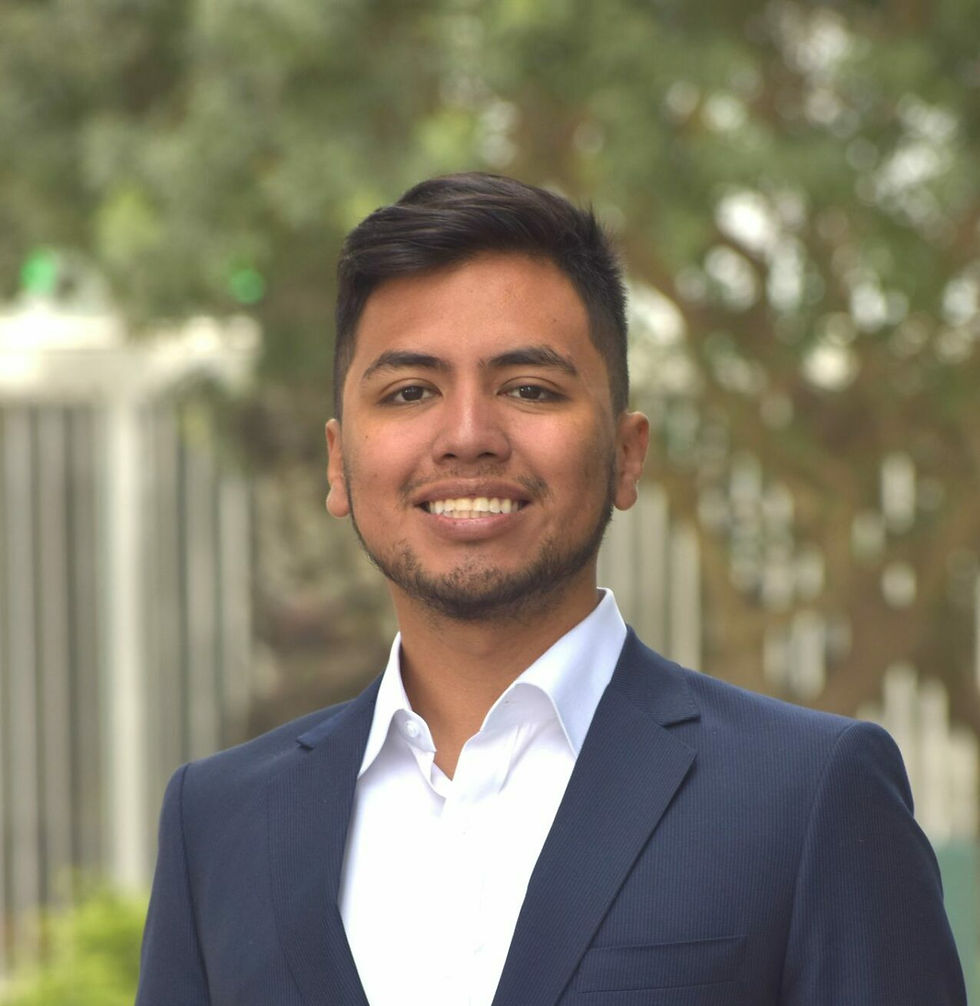It Is Recruitment Season
- Edgard Mejico Salinas

- Nov 15, 2022
- 4 min read
Updated: Sep 1, 2023
Edgard Mejico (MBA ’24) writes about the start of RC recruitment season on campus and analyzes internship statistics.

Edgard Mejico, Industry Insights Editor
Spangler common hall is full of people greeting each other for the first time and having animated conversations about interesting industries. RC students are wearing professional outfits after months of getting used to sweaters and snickers. Students are canceling plans because they have “a coffee chat this evening.” Recruitment season has started for RC students, and we can feel it. Suddenly those conversations from the first month about the future of our careers are more relevant, and we all are trying to discover—or confirm—our new paths for at least the next summer.
What makes HBS internship recruitment unique
To better understand the dynamics of summer internship recruitment, I compared data from the HBS employment report to the most recent reports for its M7 peers. Segmenting the number of students recruiting by industry, I calculated M7 averages per industry. The significant deviation from the mean for HBS can be understood by creating an index that divides the percent of HBS students spending their summer internships in an industry divided by the average percent across the M7 schools:
As we knew intuitively from talking with our classmates and the overflowing auditorium during its sector event, private equity (PE) is the third largest industry for summer internships for HBS students. In fact, it is the industry with the highest deviation from the M7 average—while only an average of six percent of M7 students have their internships in PE, at HBS it is almost double, representing 11 percent. Technology has also been gaining relevance over the years, being the top industry for summer internships at HBS and slightly above the M7 average. Consulting, on the other hand, has the second lowest percentage compared to other M7 schools, while still representing the second largest industry for HBS internships. These industries mostly have structured recruitment processes where industry leaders come to campus and introduce themselves to students. Venture capital (VC) recruitment, on the other hand, is known for depending on networking and leveraging connections. It represents the fourth largest industry for HBS summer internships and, similarly to PE, is over indexed compared to the M7 mean.
Navigating recruitment
After understanding the statistics, I talked with fellow RCs about the start of recruitment and how they are navigating the world of networking and fostering new professional connections. For consulting, top firms have already established themselves on campus, deploying company ambassadors per section and hosting coffee chats and dinners over the past weeks. Providing anonymity because of the ongoing networking process, a student describes the process as “heavy and time-consuming.” Because of office preferences, it not only involves networking with one team from a firm, but many, adding complexity to the process. However, the recruitment process is well organized and structured, and with many former consultants in our classes, we can always reach out to someone with previous experience to guide us during the process.
For students looking into finance internships, the paths have been different depending on the industry. Samin Rai (MBA ’24) describes his experience recruiting for investment management. “The first month has gone by quite quickly. Attending a few of the events, it’s become apparent to me that within investment management, there are many different paths and firms with various styles and roles. Learning about each firm’s unique investment style and culture is key to finding the right firm to fit.” As Rai mentions, fit is crucial for recruitment and in his case, the events hosted by CPD and firms are helping to determine his future decisions. In VC however, most of the networking has to be initiated by students. For Alliyah Gary (MBA ’24) networking events and information sessions helped her learn about the industry. “For VC recruitment, you have to be a self-starter”, mentions Gary. “The VCPE Club and the Black Investment Club have been really helpful. I’ve been able to learn from industry experts and people with VC backgrounds about their journeys, as well as sharing important information such as fellowship opportunities.”
For Tech, recruitment events have also already started. Big companies have done presentations and hosted coffee chats with students. For Juan Pablo Heusser (MBA ’24), the early start of the process has been helpful. “Usually Tech recruitment starts later in the year, but so far, I’ve been able to attend events with the industry leaders and get to know their culture and needs better.” Compared to banking or consulting, smaller technology firms are slowly making their way to campus. For Heusser, that is an opportunity: “I also want to know more about these smaller but innovative companies that are making an impact in the industry. It’s a mix of attending official events and doing networking and leveraging connections.”
Edgard Mejico (MBA ’24) is originally from Lima, Peru. He graduated from Universidad del Pacifico, Peru with a degree in Business Engineering in 2016. Prior to the HBS MBA, he worked for six years in Brand Management and Sales in Colgate-Palmolive Latin America.




In Pips NYT, a domino you kept avoiding becomes the crucial piece that solves two tricky regions at the same time once you reconsider its orientation.
Recruitment season always feels intense, and I know how important it is to stand out with strong skills and the right tools. Reading these insights made me realize how much technology can give an edge during interviews and job prep. Having reliable office equipment like multifunction printers, document management solutions, and fast copiers from https://da-com.com/ is one of the reasons I feel more confident when preparing resumes or printing materials for applications. Quality and efficiency matter, especially when time is limited. It’s amazing how the right technology can help stay organized and focused while chasing new career opportunities.